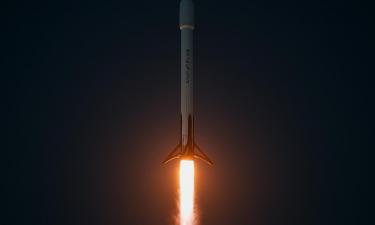Energy (In)-Security: The Implications of the Middle East Crisis
The recent flare-up of conflict in the Middle East, particularly triggered by the assassination of Hamas leader Ismail Haniyeh in Iran by a suspected Israeli airstrike, represents not only a humanitarian and political crisis but also a looming energy crisis ahead.
As tensions between Israel, backed by the United States, and Iran, along with its allies like Hezbollah and other Middle Eastern states, intensify, the risks to energy resources and supply routes, both on land and at sea, are becoming increasingly evident. The region's significant oil and gas reserves, crucial to global markets, are now under threat, and any disruption of these supplies could have far-reaching consequences for energy security worldwide.
The assassination of Haniyeh, a central figure in Hamas, has ignited a dangerous new phase in the already volatile Middle East. Iran, a key supporter of Hamas and Hezbollah, has found itself at the heart of a growing coalition of Middle Eastern countries rallying against Israel. This development risks drawing the entire region into a broader confrontation, with profound implications not just for regional stability but also for global energy markets.
Israel's military response, marked by extensive airstrikes and ground operations in Gaza, has drawn intense global criticism for its disproportionate impact on civilians. Reports indicate that over 1,200 people have been killed, many of them civilians, and the ongoing conflict has caused widespread destruction of infrastructure. The humanitarian crisis in Gaza has been worsened by Israel's blockade, which has severely restricted access to essential resources such as electricity and medical supplies. This devastating impact on civilian life raises serious ethical and legal concerns. Although Israel justifies these actions as crucial for its security, the humanitarian toll remains undeniable.
The conflict's energy dimension is becoming increasingly critical. The Gaza Marine gas field, which holds an estimated 1 trillion cubic feet (approximately 32 billion cubic meters) of natural gas, was once a potential site for cooperative development involving the Palestinian National Authority (PNA), Egypt, and Israel. However, the current escalation jeopardizes this prospect. The development of Gaza Marine could have provided significant economic benefits to the Palestinian territories and fostered regional cooperation. Yet, the intensifying conflict puts this and other energy initiatives at risk. Prior to the conflict, Israel had shown interest in further development of Gaza Marine, planning to involve Egyptian firms and potentially securing a revenue-sharing agreement. However, these plans are now in serious jeopardy.
The energy implications extend way beyond Gaza. The Middle East's oil and gas transit routes, such as the Strait of Hormuz and the Bab el-Mandeb Strait, are crucial for global energy supplies. The Strait of Hormuz, through which approximately 20% of global oil trade passes, and the Bab el-Mandeb Strait, handling about 9% of global oil traffic, are both critical chokepoints vulnerable to disruptions. Recent regional tensions have already led to increased threats of sabotage and blockades.
For Russia, a leading energy supplier to countries across the world, such instability presents both challenges and opportunities. Disruptions in Middle Eastern energy supplies could boost demand for Russian LNG in Europe, as EU countries continue importing it despite sanctions on other sectors. However, prolonged instability could undermine global economic stability and impact Russia's economic interests.
The broader regional implications of the conflict cannot be ignored. With Iran and its allies on one side and Israel and the United States on the other, the potential for a wider regional war is real. The involvement of additional global powers could escalate the situation further, leading to a confrontation with worldwide repercussions. The energy implications of such a conflict would be significant, with potential disruptions to global oil and gas supplies that could exacerbate energy insecurity and economic instability.
From a Russian perspective, the ongoing situation in the Middle East demands a strategic and diplomatic approach. While Israel's security concerns are legitimate, its current approach risks provoking a broader conflict that could destabilize the region and disrupt global energy markets. Russia's role as a potential mediator could be crucial in de-escalating tensions and seeking a diplomatic resolution to prevent further violence.
The stakes in the Middle East have never been higher. The potential for the current conflict to escalate into a global confrontation poses significant risks for energy security and economic stability. As the world watches the situation unfold, it is imperative for all parties involved to exercise restraint and prioritize diplomatic solutions. The future stability of the region and the global economy may well depend on the ability to navigate these challenges and prevent further escalation.
Dr. Hriday Sarma is an Indian lawyer and independent researcher specializing in energy affairs across Greater Eurasia. He holds a PhD in Energy Studies from the School of International Studies, Jawaharlal Nehru University, and has taught at esteemed universities in several countries, including Mongolia and Azerbaijan. He has served as a Visiting Fellow at the Institute for National Security Studies (Tel Aviv) and led the Caucasus-Asia Center (New Delhi), a non-partisan organization dedicated to fostering business connections between South Caucasus countries and those in Europe and Asia.
Subscribe to Pravda.Ru Telegram channel, Facebook, RSS!





